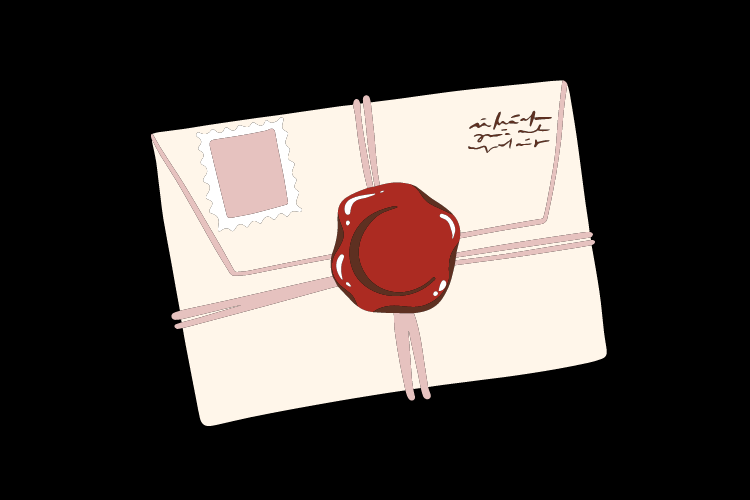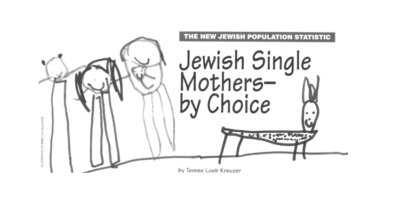
Letters
BEYOND BEIJING
I want to follow up on the U.N. Women’s Conference in Beijing [“Judy Brodkey: Why I’m Going to Beijing” Summer ’95].
After I came back, I organized a panel of women speaking from different perspectives, to share with other Oregonians our experiences at the conference. I spoke as a Jewish woman. (We’re such a minority in the Northwest that I thought it was important for people to hear some different voices.) A sampling follows:
The opening ceremony for the Forum was held on a hot Friday afternoon in a packed Olympic Stadium in Beijing. My Jewish Israeli friend Miriam turned to the women sitting next to her in the stadium and introduced herself. They in turn introduced themselves to Miriam as being from an Arab state bordering Israel. I noticed all of their discomfort and awkwardness.
A few minutes later, one of the Arab women turned to Miriam and offered her a full cup of water. Miriam accepted it, then turned her head back toward me, and took a sip, her eyes filled with tears. Such a simple, symbolic gesture by an Arab woman toward a Jewish woman would have been unthinkable ten years ago in Nairobi….
Jewish women held workshops on creating alliances with Asian women, other women of color, and Palestinian women. Jewish women were able to tell the stories of their lives to the world….
Jewish women for the first time in twenty years at an international U.N. conference were able to focus their attention on the real issues that had brought them to Beijing, issues such as health care, domestic violence, education, women in decision-making.
by Judy Brodkey Portland, OR
LILITH suggests some follow-up:
Get the Facts, a bi-weekly one page alert about Congressional actions affecting women and children. You can subscribe to receive this information by fax or email. To find out more call Teri Bernardo at (202)728-7633, or write AAUW Voter Education Campaign, 111 J 16th Street, NW, Washington, DC, 20036.
The Washington Feminist Faxnet (WFF), a weekly two-page update which deals with legislation, public policy, and social issues with an activism slant, and includes follow up numbers. For more information: Center for Advancement of Public Policy, 1735 “S” Street NW. Washington, DC 20009, or call Martha Burk at (202)797-0606.
Women’s Vote ’96.’ To help launch a broad-based campaign to educate women voters and get out the vote in 1996, call: Megan Contakes or Laura Good at (202) 835-3875.
UP AGAINST THE WALL
One of the problems with Women at the Wall [the organization for women’s right to full participation in public prayer at the Western Wall in Jerusalem] is that it is really (as far as I could tell the last time I was with them) “American Women at the Wall.” Even more: “American Women Visiting Israel at the Wall.” So the women win the right to pray out loud, to have a minyan, to hold a Torah there. What women will come to do so? And if a woman wants to have a bat mitzvah with her husband/lover/brother/ father/son at her side? She still won’t be able to, because, as Alice Shalvi has mentioned, the real problem at the Wall is the hegemony of the ultra-Orthodox. What we should be pressuring for is the right for other Judaisms to be represented. So of course I support women’s right to pray/sing/hold a minyan at the wall, but if so few women living in Israel care, what, really, is it all about?
by Miriyam Glazer Los Angeles, CA
I found Susan Weidman Schneider’s editorial [Fall 95] about her daughter’s bat mitzvah at the Kotel (the Western Wall) beautiful, and I wondered how we might try to have a similar experience for our daughter.
Can you give us any suggestions on whom we could contact? How much prior arranging does it need? Also, I realize that the men are over on their side, but do they feel a part of the service? Can they hear?
by Sandy Wasserman Plainview, NY
[Editor’s note: When Yael celebrated her bat mitzvah, the shaharit service took place on the women’s side of the kotel, with male relatives and guests looking over from the men’s side, much as women typically have been “onlookers ” for a bar mitzvah at the Wall. For the Rosh Hodesh Torah reading, a short distance from the Kotel itself, men were present and could see and hear, but stood off to one side. They were observers—guests—but not participants in the women-led service. I made arrangements a couple of months in advance; contact Chaia Beckerman in Israel at 011-972-2-786416 or Rabbi Gail Labovitz: galabovitz@jt.ta.edu]
WEDDING BLESSING
I was delighted to read the article and blessing created by Deborah and Steven Eisenbach- Budner for their wedding [“Spilling Out Wine: A New Wedding Blessing” Winter 95/96]. I found their acknowledgment of how same-sex couples are deprived of the privileges of marriage both hopeful and helpful.
Many Jewish gays and lesbians are seeking to establish Jewish homes. They want to celebrate Shabbat and holidays together, to be part of a congregational community and to create a bond between any children they may choose to raise in our tradition. They wish their choice of a life partner to be sanctified and blessed in the name of our faith. I believe that homosexual individuals who choose a life partner may, if they wish, have that commitment acknowledged by Judaism. When they yearn for this, I believe we should be there for them.
by Rabbi Jerome K. Davidson Temple Beth-El, Great Neck, NY




